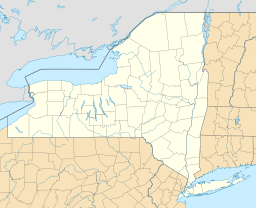Tully Lake (New York) facts for kids
Quick facts for kids Tully Lake |
|
|---|---|
| Location | Onondaga County, Cortland County, New York, United States |
| Coordinates | 42°46′35″N 76°08′07″W / 42.7763995°N 76.1352392°W |
| Basin countries | United States |
| Surface area | 230 acres (0.93 km2) |
| Average depth | 8 feet (2.4 m) |
| Max. depth | 34 ft (10 m) |
| Shore length1 | 6.1 miles (9.8 km) |
| Surface elevation | 1,194 ft (364 m) |
| Islands | 1 |
| Settlements | Tully Center, New York |
| 1 Shore length is not a well-defined measure. | |
Tully Lake is a lovely lake located near Tully Center, New York. It's a great spot for nature lovers and those who enjoy fishing. This lake is found in both Onondaga County and Cortland County in the state of New York, United States.
Contents
About Tully Lake
Tully Lake is a freshwater lake that covers about 230 acres, which is like 175 football fields! It's not super deep, with an average depth of 8 feet. The deepest part of the lake goes down to 34 feet. The lake has one small island and a shoreline that stretches for about 6.1 miles. It sits at an elevation of 1194 feet above sea level.
What Lives in the Lake?
Tully Lake is home to several types of fish. If you enjoy fishing, you might catch some interesting species here.
Fish Species
- Carp: These are large, strong fish that can grow quite big. They are known for being bottom feeders.
- Yellow perch: These fish are popular among anglers. They have a distinctive yellow color with dark stripes.
- Pumpkinseed sunfish: These small, colorful fish are fun to catch. They get their name from their bright orange and green markings, which look a bit like a pumpkin seed.
Visiting Tully Lake
Tully Lake is a public lake, meaning people can visit and enjoy its natural beauty. There are a few rules to help keep the lake safe and enjoyable for everyone.
Access and Boating
You can get to Tully Lake through a state-owned access point on Friendly Lane. This is a "carry down" access, which means you'll need to carry your boat or kayak to the water. For boats with motors, there's a special rule: motors cannot be more powerful than 7 horsepower. This helps keep the lake peaceful and protects the environment.
 | Isaac Myers |
 | D. Hamilton Jackson |
 | A. Philip Randolph |



